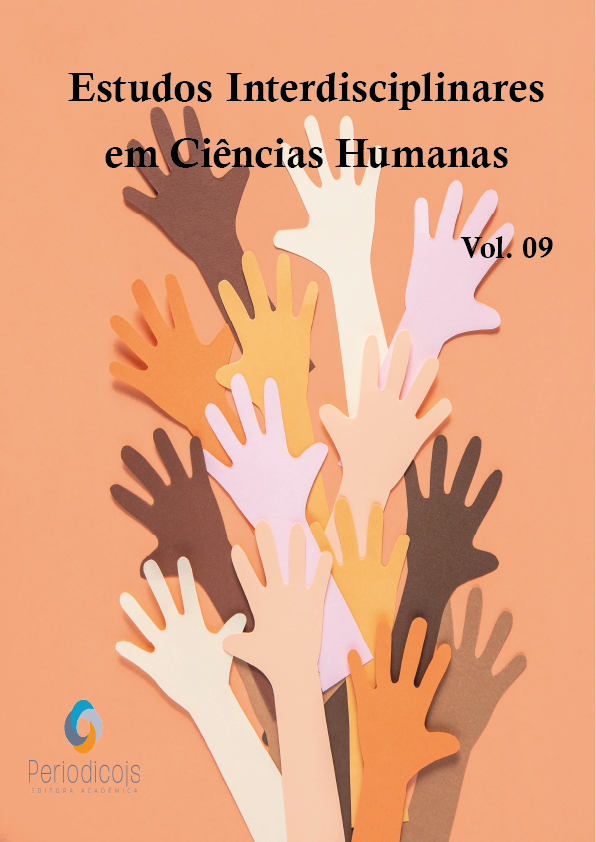Abstract
The labor market has increasingly demanded an education that is more centered on the learner and teaching that includes skills and abilities. This work aims to try to demonstrate how the cognitive approach, when taking into account the learner’s mental capacities, can contribute to a meaningful learning of the contents. For this, we describe and analyze an English language class in a medical class at a private college, which contemplates the elaboration of a methodology that takes into account learning principles based on cognitive theories, in particular, developed by Vygotsky, through sociointeractionism. , and Ausubel, from whose theory we explore the concept of meaningful learning. The results allow us to perceive that, in fact, a teaching more focused on the learner can provide a more meaningful learning of the concepts to be learned, but it can also be decisive in the sense of facilitating the learning of these contents and creating a more propitious environment for an education based on in fewer obstacles and prejudices, inside and outside the school environment.
References
AUSUBEL, D.P. Educational psychology: a cognitive view.(1a ed). New York: Holt, Rinehart and Winston, 1968.
AUSUBEL, D.P. Educational psychology: a cognitive view.(2 ed). New York: Holt, Rinehart and Winston, 1978.
CUNHA, T.R.A. A crise educacional da contemporaneidade e o ensino universitário. In: BAGGIO, Vilmar (org.) Vozes da Educação. São Paulo: Diálogo Freiriano, 2019. Vol. 10.
FREIRE, Paulo. A pedagogia do oprimido. Rio de Janeiro: Paz e Terra, 2016.
FIGUEIREDO, Francisco José Quaresma. Vygotsky: A interação no ensino/aprendizagem de línguas. São Paulo: Parábola, 2019.
GOODWIN, C. James. História da psicologia moderna. São Paulo: Cultrix, 2010.
MARCONI, Marina de Andrade; LAKATOS, Eva Maria. Fundamentos de metodologia científica. São Paulo: Atlas, 2010.
MCKEACHIE, W. J. Psychology in America’s bicentennial year. American Psychologist, n. 31, p. 819-833, 1990.
MOREIRA, Marco Antônio. Aprendizagem significativa: a teoria de David Ausubel. São Paulo: Moraes, 1982.
MOREIRA, Marco Antônio. Aprendizagem significativa: a teoria e textos complementares. São Paulo: Editora Livraria da Física, 2011.
PAPALIA, Diane E. & FELDMAN, Ruth Duskin. Desenvolvimento humano. Porto Alegre: AMGH, 2013.
ROMUALDO, C.O que é Andragogia. Esboço - Revista do Centro Universitário Moura Lacerda, Ribeirão Preto, 2001.
SCHLOCHAUER, Conrado. Lifelong learners: o poder do aprendizado contínuo. São Paulo: Editora Gente, 2021.
SCHLOCHAUER, Conrado; LEME, Maria Isabel da Silva. Aprendizagem ao longo da vida: uma condição fundamental para a carreira. In: Revista de Carreiras e Pessoas. São Paulo. V.02, n.02, Maio/Junho/Julho/Agosto 2012. Disponível em: https://revistas.pucsp.br/index.php/ReCaPe/article/download/11864/8585/28446. Acesso: 09/11/2021.
SCHULTZ, Duane P. & SCHULTZ, Sydney Ellen. História da psicologia moderna. São Paulo: Cengage, 2020.
VIGOTSKI, L.S. Pensamento e linguagem. São Paulo: Martins Fontes, 2005.
ZABALA, Antoni. & ARNAU, Laia. Como aprender e ensinar competências. Porto Alegre: Artmed, 2010.





